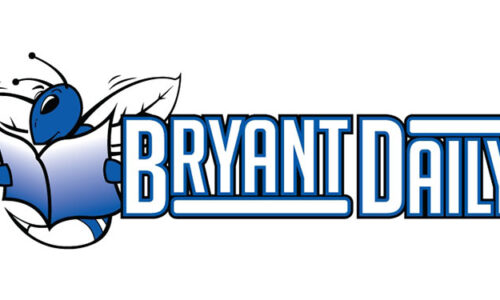By Jennifer Joyner
Bryant School District is joining school systems throughout the state in implementing the[more] Common Core Curriculum, a program meant to better prepare students to be competitive in college and in the job market.
Approved by the Arkansas Board of Education in 2010, the curriculum will set fewer, more challenging standards for students, according to the Bryant Public Schools website. In fact, many skills will be taught two grade levels earlier than what is currently expected.
The State Department of Education held a forum for the program on Thursday evening at the Bryant Middle School Media Center.
The need for the new curriculum is, in part, “economically driven,” said Debbie Bruick, assistant superintendent of Bryant Schools. The goal is to prepare children for the careers of the future, which they are now competing for internationally – not just with people in the United States.
“My daughter is already a defeatist,” said Jill Lasey, a parent to three children in the Bryant Schools system. “She said, ‘The economy’s bad; I’m not going to get a job anyway.’” The children need to realize now is the time to work harder, so they can be competitive, she added.
And administrators believe the Common Core program will help.
Over the years, the curriculum has been “watered down,” Bruick said, “and, with lower standards, we create lower products: our kids.”
So, another goal of a more intense learning standard is to keep students engaged. The national drop-out rate is very high, and the number one reason is because they are bored.
“I was sitting in a speech class today and asked the students if they had felt challenged in high school,” Bruick said, “and they all said they hadn’t.”
Chad Withers, assistant principal and ALE administrator at the alternative school, thinks it would be a “home run” for his students. “When the kids are bored, they get in trouble,” he said. “The traditional format is not working for these kids.”
The standards put forth through the Common Core program are available at www.bryantschools.org/parents-students/common-core, along with videos explaining the program and tips for parents.
Common Core will help ensure learning benchmarks be standard throughout the state, which is important, Lasey said. “When we moved from Little Rock, my child didn’t know multiplication tables, which they had already done here.”
The curriculum will be “project-based and hands-on” and will promote “problem solving, critical thinking and cross-curricular connections,” Wither said. “A teacher might have 30 different kids with 30 different learning styles.”
The Common Core program is meant to help accommodate for that.
Grades K-2 began using the curriculum in the 2011-2012 school year. The timeline for the other grades is as follows: Grades 3-8 will start in the 2012-2013 school year and grades 9-12 will start in the 2013-2014 school year. In the 2014-2015 school year, a new national assessment will replace the Arkansas Benchmark exam.
The transition will take time.
“It will be a process,” said Kim Hammer, a state representative in attendance at the event to promote understanding about Common Core. One of the challenges will be that it is a break in tradition. “We have to also teach parents.”
Parents might be confused and think the teacher is not teaching, but they will just act more as “coach,” Bruick said. Parents might want their children to learn math the way they did, so they can help them with it. “They expect to see them coming home with textbooks and might be surprised to come to school and not see them sitting in rows.”
Bruick says parents must have trust in the school system.
Getting the word out is, in itself, a challenge. “For many parents, the focus has changed,” Lasey said. For parents who are not proactively involved in their child’s schooling, “you’re going to have to make the information pretty easy to get.”
More information is available at commoncore.arkansas.org.
The mission of the Common Core Curriculum can be connected to the initiative of the Community for the Whole Child, according to the website. One goal is to help students learn about and practice a healthy lifestyle.
“You can’t teach a hungry or sick child,” Hammer said.
Other goals include helping children learn in a safe environment, to be actively engaged in learning, and to be challenged, according to the website. It’s also essential for children to be supported by adults.
More information about this philosophy is available at wholechildeducation.org.

